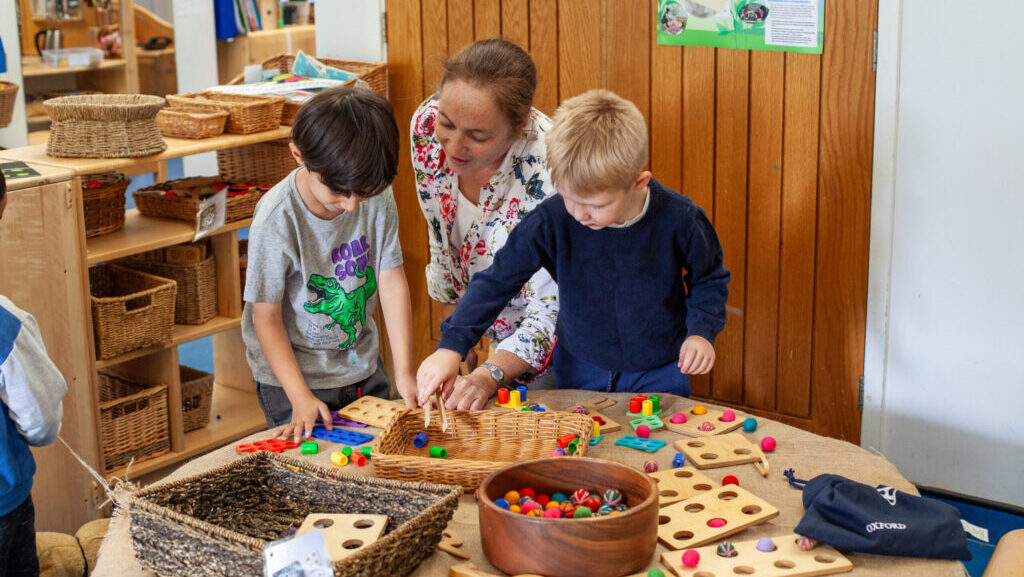Upskilling your team to engage in reflective practice and action research can boost staff retention and wellbeing, as well as…
Realise apprenticeships: finding the right partner
Karen Derbyshire, operations director for early years at training provider Realise, says it’s important to have the correct team delivering apprenticeship programmes for your nursery and explains why change doesn’t have to be a daunting prospect
Nursery settings are facing a defining period when it comes to apprenticeship training over the coming weeks, months and years.
Having a settled and successful apprenticeship programme has rarely been more important and will be at the top of the list – or at least very near to it – when it comes to strategic decisions facing nursery owners and managers in the remainder of 2023.
The concerning levels of recruitment and retention that have dogged the industry in recent years means apprenticeships should be viewed as incentives to those either looking to enter the early years sector for the first time, or those looking for career progression through upskilling.
Throw in the dramatic changes to the early years sector outlined in the March Budget and it’s clear to see that apprenticeships will be crucial to helping nurseries create, and then build, a team to meet the growing demand for its services.
Given the difficulties of having a full in-house training provision, it’s extremely likely that virtually all nursery settings will partner in some way with an external independent provider.

Realise apprenticeships: where to find the right partnership
So how can a nursery assess whether its current training provider is the correct one to help deliver its short, medium and long-term objectives?
One of the clearest ways to measure the success of a training provider is to assess its Qualification Achievement Rates (QARs), which monitor the percentage of learners reaching the end of their programme and completing all elements of the apprenticeship successfully.
The national average for the early years sector is currently 53%, so if your training provider is under that level, it would be prudent to have a conversation over what plans are in place for this figure to be improved.
The QARs can often throw up some interesting results so, however big or small a nursery’s training provider is, these figures should be assessed.
Another key facet in determining whether you have partnered with the right training provider is to assess whether they are meeting all your requirements – both geographically and through training programme content.
Realise apprenticeships ethos focuses on the strong bond between trainer, learner and employer. It’s vitally important that face-to-face meetings form a regular part of the communication mix, so having all parties in close proximity certainly aids that happening.
It is also important that providers can deliver all the requirements of a nursery setting when it comes to training.
Quite often, we come across nurseries utilising multiple providers, making it difficult to bring consistency to training programme delivery. Utilising one provider which can deliver at all the different levels required by a nursery provides the cleanest route to a successful apprenticeship programme.
So what should you do if you feel your nursery and apprentices would benefit from partnering with a different provider?
The short answer is to go ahead and pursue those different options. As with any walk of life, many are comfortable with retaining the status quo and nervous about exploring alternative training providers.
Part of that comfort blanket comes from a concern that switching providers would lead to a huge amount of work – not least administratively – to transfer over the setting and its learners.
The truth is that there is a level of paperwork that comes with the switch but, certainly in the case of Realise apprenticeships, we handle the vast majority of that on behalf of the setting looking to partner with us, including finding out the information about the financial contribution already made – and still due – by the employer.
Regardless of the number of apprentices a nursery currently has on its payroll, or how many months those apprentices have remaining on their training programme, a transfer of providers should be completed within no more than six weeks, with no disruption and a seamless transition guaranteed.
So, the message is simple. If as a nursery manager you are happy and content with your current provider, continue to enjoy the benefits the programme is bringing to your nursery and your people. If, however you have any reservations at all about your current provision, it is time to be brave and seek an alternative.
Accepting second best is no longer good enough when it comes to apprenticeships. The future success of your nursery is resting, at least in part, on you selecting the right training provider. Don’t be scared to change.
Latest Features
Male nursery team members can enrich the learning environment for younger children. Claudio Sisera head of diversity and inclusion at…
Last year, National Day Nurseries Association brought together a range of early years experts to produce the Blueprint for Early…





